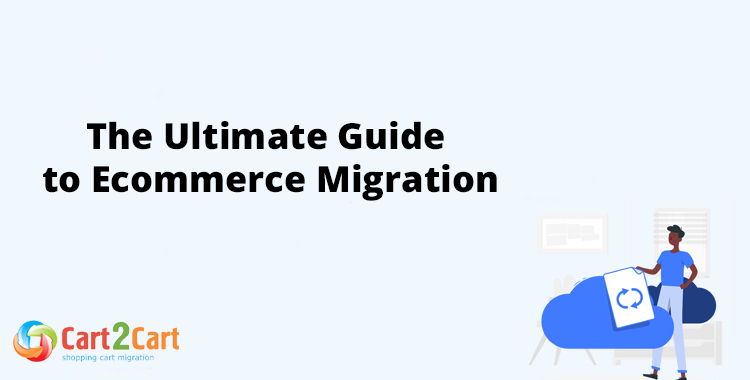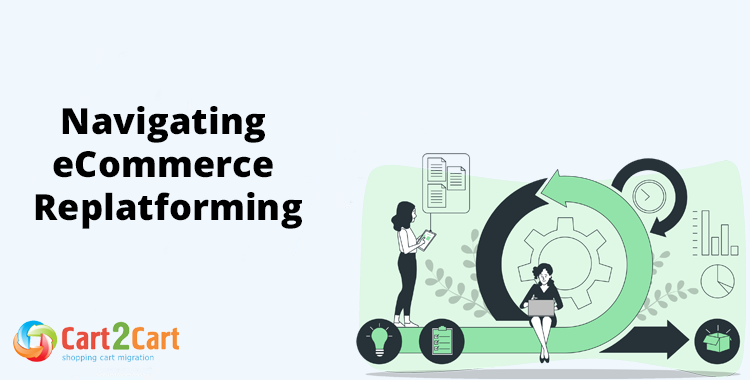Alibaba Migration
Seamless Alibaba Migration is now a reality. When you need to migrate from Alibaba, trust Cart2Cart to deliver an entirely secure, fully automated process that guarantees zero downtime for your existing store. Our expert solution, completed in just a few hours, eliminates all complexity and risk, ensuring your valuable data—including products, customers, orders, SEO URLs, and more—is transferred comprehensively and flawlessly. Experience the definitive, safest path to your new e-commerce platform with unparalleled peace of mind.
How to Migrate to Alibaba
This step-by-step guide details how to securely migrate to Alibaba from any other e-commerce platform using Cart2Cart, ensuring complete data integrity for your online storefront.
- Register and Initiate: Create a Cart2Cart account to begin your platform switch. This initial step is free and takes only a minute.
- Connect Your Source Store: Provide the credentials for your current platform to allow secure API access for the data transfer.
- Connect Alibaba Target Store: Prepare your data in a CSV file according to Alibaba's import requirements. This file will serve as the target for your data transfer.
- Select Data and Options: Choose which data entities to move, including products, SKUs, and customer orders. Configure crucial options like 301 redirects to preserve your SEO rankings.
- Run a Free Demo Migration: Launch a free test transfer to move a limited set of your data. This allows you to check the results directly in your new Alibaba store before the full replatforming.
- Launch the Full Migration: Once satisfied with the demo, start the full migration. The process runs on our servers, ensuring no downtime for your business.
Pro-Tip: The migration to Alibaba is handled as a target-only transfer using a CSV file import. This method requires no additional plugins on the Alibaba side, simplifying the setup process.
Automated migration
Just set up the migration and choose the entities to move – the service will do the rest.
Try It Free
Data Migration Service Package
Delegate the job to the highly-skilled migration experts and get the job done.
Choose Package
What data can be migrated from/to Alibaba
-
Products
-
Product Categories
-
Manufacturers
-
Customers
-
Orders
Choose all the extra migration options and get 40% off their total Price
We’re committed to protecting our customers’ data security. Check out our Security Policy
The Cart2Cart service has all the necessary functionality to migrate store databases on Alibaba of any size and complexity. Below are the most popular migration directions among our customers:
Help Center
Let’s figure out everything about Alibaba migration through
Cart2Cart.
Discover our checklist, related articles, and answers on frequently asked questions.

 June 7, 2023
June 7, 2023 The Ultimate Guide to eCommerce Migration: How-To Directions and Best Practices
Read full articlePay only for what you migrate - the cost depends on the number of records to be moved
Get Your Personalized Alibaba Migration Estimate
Uncover your precise Alibaba migration cost with our instant calculator. Get transparent Alibaba migration pricing tailored to your specific needs, ensuring you understand the full Alibaba migration price without any hidden surprises as you plan your move to Alibaba.
Alibaba Monthly Pulse: The Strategic Pivot to AI-Powered Value Creation
This month, Alibaba's trajectory reveals a deliberate and calculated pivot from a strategy of broad-based growth to one of deep, technology-driven value creation. Faced with relentless domestic competition and a complex global macroeconomic environment, the e-commerce titan is doubling down on its core technological strengths. The narrative is no longer solely about user acquisition; it's about empowering its existing merchant base with sophisticated AI tools and fortifying its global logistics infrastructure to build an unassailable, high-value ecosystem. For business leaders, this signals a more focused, resilient, and technologically advanced Alibaba emerging from its period of restructuring.
Navigating the Competitive Gauntlet
Alibaba's latest quarterly earnings report, while showing modest single-digit growth in its core Taobao and Tmall Group revenue, tells a story of strategic stabilization. In a market where competitors like PDD Holdings are capturing attention with aggressive pricing, Alibaba is reinforcing its position by focusing on customer retention and increasing purchase frequency among its high-value "88VIP" member base. The key takeaway for decision-makers is that Alibaba is consciously choosing to defend its premium market share rather than engaging in a race-to-the-bottom price war. This strategic discipline, while tempering top-line growth figures, is crucial for long-term profitability and brand equity.
Fortifying the Core E-commerce Engine
Behind the scenes, Alibaba has completed a significant infrastructure upgrade to its proprietary cloud computing backbone, Apsara. This recent optimization focuses on reducing latency in real-time data processing for merchants. The direct benefit is a more responsive analytics dashboard, allowing sellers to make faster decisions on inventory and pricing during flash sales. For the end consumer, this translates to faster page-load times and a smoother checkout process, directly impacting conversion rates. This is a foundational investment that ensures the platform remains robust and reliable as data complexity continues to grow.
Expanding the Innovation Frontier via Open APIs
The developer ecosystem is buzzing with the wider release of APIs connected to Alibaba's Tongyi Qianwen large language model. This move is strategically vital, as it empowers third-party developers to build a new class of AI-native applications within the Alibaba marketplace. We are already seeing the emergence of specialized apps for AI-driven ad campaign optimization and predictive inventory management. By democratizing access to its core AI technology, Alibaba is fostering an environment of co-innovation, ensuring its platform remains at the forefront of e-commerce technology without having to build every solution in-house.
The AI Imperative: A New Suite of Merchant Tools
The most significant flagship release this month is the "AI Business Assistant" suite, now fully integrated into the Tmall merchant backend. This feature is a game-changer for small and medium-sized enterprises. It leverages generative AI to instantly create compelling product descriptions, generate lifestyle-oriented marketing images from simple product photos, and even power intelligent customer service chatbots. The strategic value is immense: it dramatically lowers the operational overhead for merchants, allowing them to compete on a more level playing field with larger enterprises that have dedicated creative and support teams.
Bolstering Trust with Enhanced Supply Chain Verification
In a move to further enhance platform integrity, Alibaba has rolled out an enhanced anti-counterfeiting protocol that uses a combination of AI image recognition and supply chain data analysis. This new system can more accurately flag suspicious listings and verify the authenticity of high-value goods. For global brands, this enhancement is a critical signal of Alibaba's commitment to brand safety. It builds the institutional trust necessary for luxury and enterprise-grade companies to invest confidently in their digital storefronts, mitigating the risk of brand dilution from fraudulent sellers.
Cainiao's Ascendancy: The Global Logistics Play
Alibaba's global ambitions are increasingly being realized through its logistics arm, Cainiao. This month saw the expansion of its "5-Day Global Delivery" commitment to include key markets in the Middle East, specifically the UAE and Saudi Arabia, supported by new automated sorting centers. This isn't just a logistics update; it's a strategic enabler for AliExpress and Tmall Global. By guaranteeing fast and reliable cross-border fulfillment, Alibaba is drastically improving the value proposition for both international consumers and the merchants looking to reach them, creating a formidable competitive moat in the global e-commerce landscape.
Enterprise Endorsement: A Premium Spanish Lifestyle Brand Joins
Underscoring the success of its value-focused strategy, renowned Spanish luxury leather goods and lifestyle brand, Loewe, launched an expanded and highly integrated flagship store on Tmall Luxury Pavilion. Loewe's decision was likely driven by a confluence of the factors detailed above: the platform's access to a verified high-income consumer base, the robust brand protection mechanisms now in place, and the sophisticated data analytics tools that allow for deep customer engagement. This migration serves as a powerful endorsement, signaling to other premium international brands that Alibaba's ecosystem is the premier destination for reaching the discerning Chinese consumer.
Source: Analysis based on Alibaba Group's latest investor relations data, official press releases from Alizila, and reporting from leading e-commerce industry publications for the preceding month.
Just set up the migration and choose the entities to move – the service will do the rest.
Try It FreeDelegate the job to the highly-skilled migration experts and get the job done.
Choose Package















